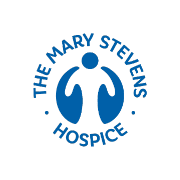“No Barriers Here lives up to the name…”
By Stephanie Owens
No Barriers Here is an award-winning programme that seeks to help communities experiencing inequalities and vulnerabilities navigate end of life care and advance planning through the medium of art.
Now I don’t consider myself “crafty” or “arty” in any way, but I am passionate about opening up conversations about death and inclusion. This was why I couldn’t pass up the chance to join in the facilitator training. As a neurodivergent person, I was excited to get started with something I regarded as inclusive and accepting. I’ve long felt that this is lacking particularly when it comes to healthcare, and having had bad experiences myself, I was keen to see how this could help me as well as others.
The training took place at Royal Trinity Hospice in London. The hospice is in a lovely location right by Clapham Common and from the moment I got to the room where the training took place, straightaway I felt reassured. Gemma and Jed are very welcoming and a box with all the materials we’d need for the day were waiting.

Everything from how the day was going to play out to the background of the training was transparent, clear and explained well through words and videos. If there were any questions, there was no hesitation to clarify. I found it interesting at the start when it was stated that many people outgrow their creativity. Most people there were like myself and had ceased all fun creative pursuits such as drawing and colouring and painting a long time ago. Not to say that it wasn’t there, we just had to relearn how to apply it.
The first activity was to draw around your hand and then to add elements around the outline, including people and things that are important to you. It really reminded me of being a child and that wasn’t a bad thing. I think it makes people remember what it was like and engages the mind in a more innocent manner – something very helpful when contemplating mortality. Children have a natural curiosity about death after all and it is usually the adults who put the fear on to them, or feel like they shouldn’t hear such things. It was the perfect introduction exercise.
The second activity was to decorate a square of fabric. It was divided into four sections and each section represented something important to us with regards to end of life, such as the people/things closest to us with whom we’d trust those end-of-life plans, funeral plans, how we want to be remembered. For me, this was fairly easy – I’ve been thinking about this my whole life! (I want a 90s rave themed funeral by the way!) But for others it was more emotional and perhaps not something they have considered before. The was certainly the activity where it seemed people had relaxed a bit more and had become more involved. The magic of crafts had definitely worked; everyone really engaged with it and found they became more open and comfortable, myself included.
The third one was the trickiest activity. It involved using a loom and it was the one I was most intimidated by. I really thought I would not be able to do it and I wasn’t alone in this! Some people are naturals at it, and whereas I was not, it was also less daunting than I first thought. I got into quite a rhythm in fact and managed to create a pattern of green ribbon with wooden leaves woven into it that included words than have meaning for me.
As the day ended, I think everyone walked away feeling more peaceful and confident, which is a wonderful thing when it comes to discussing death. There had been such freedom in doing these exercises. You could write. Or not. You could use coloured pens. Or not. You could stick on bits of fabric or sequins… or not. That was the beauty of it for me. It could be anything and that is what made it inclusive. And you just don’t get that in other funeral planning activities.
As facilitators, Gemma and Jed take on board everything and adapt to individual needs, creating a safe space. Any sensory need was taken seriously and accepted. Everything was explained and help was always at hand. Myself and others felt comfortable enough to openly talk about our neurodivergence, sexuality, backgrounds and fears without judgement.
For many people (even those in the sector sometimes) death is not always an easy topic, particularly if it is about yourself or a loved one; and often isn’t accessible to those who do want to talk about it. No Barriers Here lives up to the name and I can recommend it to anyone wondering how to open up those end-of-life planning conversations.
For further information about No Barriers Here, including upcoming training dates or enquiries about bespoke delivery, please visit: www.nobarriershere.org or follow @NoBarriersHere on X (Twitter), Instagram and LinkedIn.

